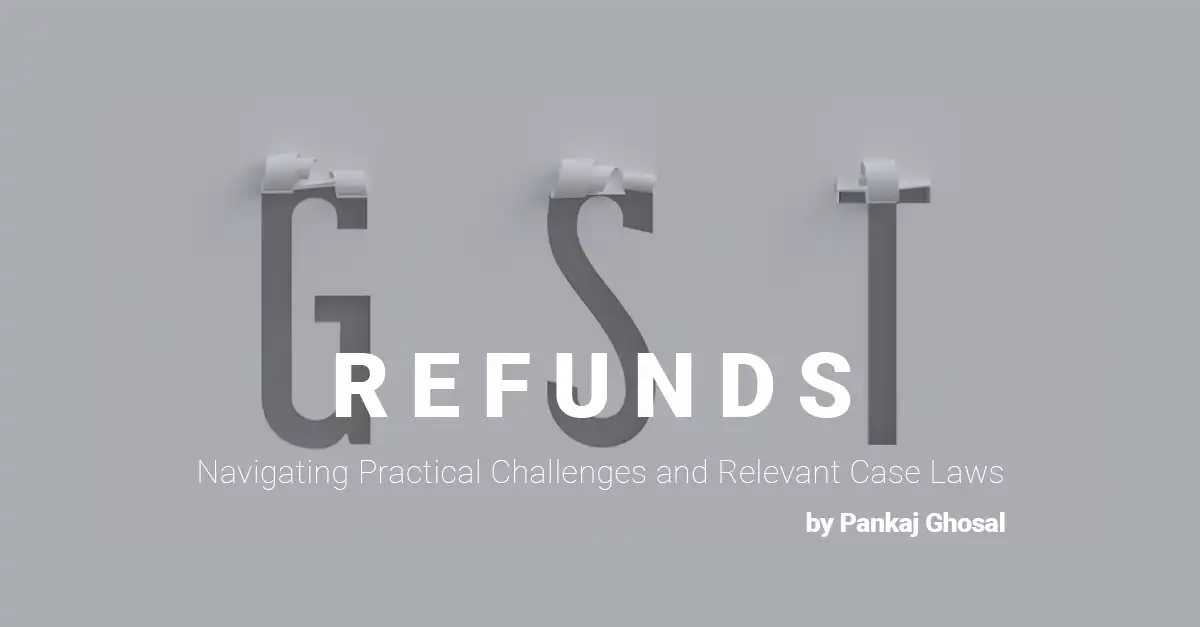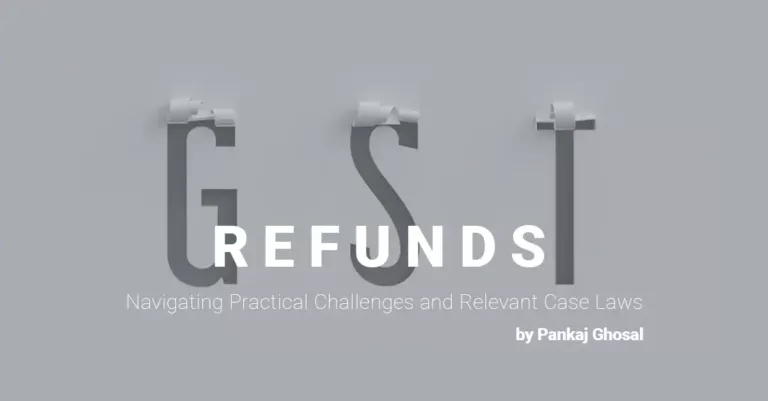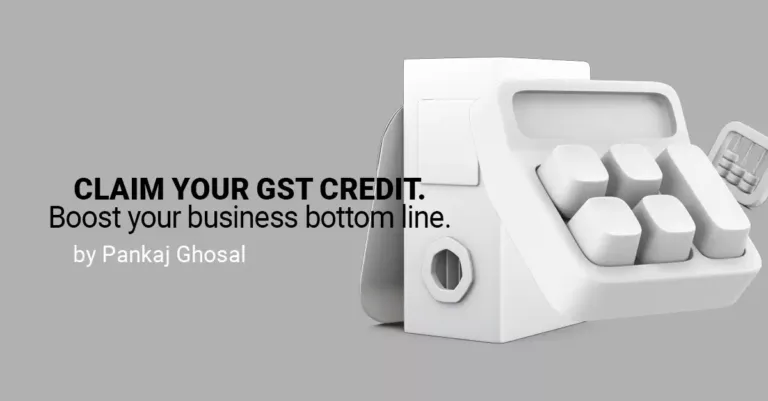
The input tax credit (ITC) system under the Goods and Services Tax (GST) regime is a significant advantage for businesses, as it enables them to claim credit for taxes paid on purchases made for business purposes. Timely refunds of taxes paid are crucial for businesses to ensure the effective functioning of the ITC system. This article will cover different situations where businesses can claim GST refunds and the corresponding legal cases.
Scenario 1: Exports
Under the GST regime, exports are considered as zero-rated supplies, which means that no tax is payable on exports. However, in order to facilitate exports, businesses are allowed to claim refunds of the taxes paid on inputs used for the purpose of exports. The following are some scenarios where GST refunds may be applicable under exports:
-
Export of goods without payment of IGST: In this scenario, the exporter can claim a refund of the unutilized ITC on inputs and input services used in the manufacture or processing of goods meant for exports.
-
Export of goods with payment of IGST: In this scenario, the exporter can claim a refund of the IGST paid on the exported goods. The refund may be granted either on a provisional basis, subject to further verification, or on a final basis, after completion of the verification process.
-
Export of services: In this scenario, the exporter can claim a refund of the unutilized ITC on inputs and input services used in the provision of export services.
Scenario 2: Inverted Duty Structure
In some cases, businesses may end up paying more tax on inputs than on the output, which is known as an inverted duty structure. In such cases, taxpayers may end up paying more input tax than the output tax, resulting in accumulation of unutilized input tax credit (ITC).
Amended formula under CGST Rule 89(5) via Central Tax notification no: 14/2022 for the calculation of refund of accumulated ITC under inverted duty structure is applicable for refund applications filed on or after 5th July 2022. Hence, the refund applications filed before 5th July 2022 shall be processed with the earlier formula.
| Amended Formula | Earlier Formula |
| Maximum Refund Amount = {(Turnover of inverted rated supply of goods and services) x Net ITC ÷ Adjusted Total Turnover} – {tax payable on such inverted rated supply of goods and services x (Net ITC ÷ ITC availed on inputs and input services) | Maximum Refund Amount = {(Turnover of inverted rated supply of goods and services) x Net ITC ÷ Adjusted Total Turnover} – tax payable on such inverted rated supply of goods and services. |
Scenario 3 : Refund Of Excess Tax Payment
Taxpayers may sometimes end up paying more GST than they are required to. This could happen due to various reasons, such as incorrect calculation of tax liability, mistaken interpretation of the law, or technical glitches in the GST portal. In such cases, taxpayers are entitled to claim a refund of the excess tax paid.
M/s. Maruti Suzuki India Ltd. v. Union of India (2021): In this case, the petitioner had claimed refund of excess GST paid on account of mistake in calculation. The authorities rejected the refund claim on the ground that the petitioner had not provided sufficient evidence to prove the excess payment. The Punjab and Haryana High Court held that the authorities cannot reject the refund claim on technical grounds and directed the authorities to consider the refund claim on its merits.
Process For Claiming GST Refunds
Under the GST regime, businesses can claim refunds for taxes paid on inputs used for the purpose of business. The process for claiming a refund is as follows:
-
Filing of GST returns: In order to claim a refund, the business must have filed all GST returns for the relevant period. This includes GSTR-1 (outward supplies), GSTR-2 (inward supplies) and GSTR-3B (monthly return).
-
Filing of refund application: The business must file a refund application in the specified form (RFD-01) on the GSTN portal within 2 years from the end of the relevant financial year. The refund application must be accompanied by supporting documents such as invoices, purchase orders, and shipping bills.
-
Processing of refund application: Once the refund application is filed, it is verified by the GST authorities. The authorities may ask for additional information or documents if required. If the refund application is found to be complete and correct, the refund amount is credited to the bank account of the business.
Challenges In Claiming GST Refunds
While the process for claiming GST refunds may seem simple, businesses face several challenges in doing so. Some of these challenges are:
-
Delay in processing of refund applications: Businesses often face delays in the processing of refund applications, which can lead to a cash flow crunch. The GST authorities have been taking steps to streamline the refund process, but more needs to be done to ensure that refunds are processed in a timely manner.
(Tata Projects Limited v. Union of India (2021): The petitioner had filed for GST refund for FY 2019-20, but the same was not processed by the authorities. The Bombay High Court directed the authorities to process the refund within a specified time period and also imposed a cost on the authorities)
-
Rejection of refund applications: Refund applications may be rejected if they are not filed correctly or if the supporting documents are not in order. Businesses need to ensure that they file their refund applications correctly and provide all the necessary documents to avoid rejection.
(Gati Kintetsu Express Pvt. Ltd. v. Union of India (2019): In this case, the petitioner had claimed refund of GST paid on transportation services received for export of goods. The authorities rejected the refund claim on the ground that the petitioner had not furnished the required documents. The Telangana High Court held that the authorities cannot reject the refund claim merely on the ground of non-submission of documents and directed the authorities to consider the refund claim on its merits) -
Errors in claiming ITC: Errors in claiming ITC can lead to the rejection of refund applications. Businesses need to ensure that they claim ITC correctly and in accordance with the provisions of the GST law.
(K P Waste Company v. Union of India (2021): In this case, the petitioner had claimed refund of GST paid on exports. The authorities rejected the refund claim on the ground that the petitioner had claimed ITC on certain goods, which were not used for exports. The Madhya Pradesh High Court held that the authorities cannot reject the refund claim on the ground of error in claiming ITC and directed the authorities to consider the refund claim on its merits)
Conclusion
Refunds of the Goods and Services Tax (GST) are essential to the financial flow of businesses, particularly small and medium-sized enterprises (SMEs). Although claiming a refund may appear to be a straightforward process, businesses face numerous obstacles when doing so. By comprehending the various circumstances under which GST refunds can be claimed and the applicable case laws, businesses can ensure that their refund claims are accurate and submitted on time.
In general, claiming a GST refund can be a difficult procedure for businesses. To surmount these obstacles, businesses must have a comprehensive comprehension of the GST refund procedure, eligibility criteria, and required documentation. It is essential for businesses to monitor their reimbursement claims and contact the GST authorities if there are any delays in the processing of their refund requests. By doing so, businesses can ensure prompt and efficient receipt of their refunds.

Pankaj Ghosal
Experienced Chartered Accountant with a demonstrated history of working in the financial accounting industry. Skilled in Internal Audit, Accounting and GST compliance and litigation matters. Strong finance professional graduated from The Institute of Chartered Accountants of India.










